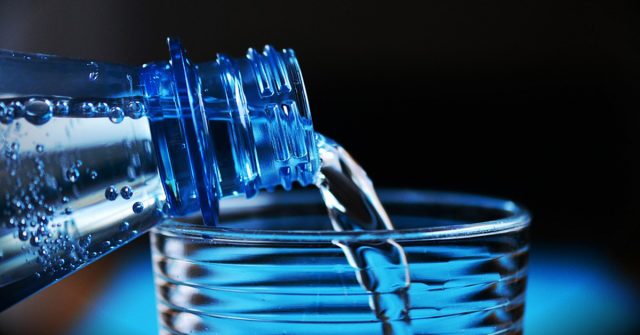Drinking water on an empty stomach can work wonders for our health. Angela Lemond, national spokesperson for the Academy of Nutrition and Dietetics, calls it “the gold standard fluid for the body.”
“An adult body is around 55-60% water,” she said, so “drinking water everyday is vital for the body to work correctly.”
“Our bodies are pretty dry when we wake up in the morning,” she said. “Drinking a couple glasses of water to allow the body to rehydrate allows for better digestion when you do eat. It also helps with moving the lower bowels for regularity in the mornings. If you are not properly hydrated, body processes do not work as efficiently.”
The simple and enjoyable act of drinking water can also help with many health conditions.
Drinking Water On An Empty Stomach Can Help You Treat These 9 Conditions
1. Arthritis
Drinking water on an empty stomach helps us maintain an adequate blood volume thereby helping nutrients flow through the blood into the joints. This promotes joint health and reduces the risk of arthritis. Water flow also helps to eliminate toxins and other unhealthy materials from the joints. The Missouri Department of Health and Human Services reported that chronic dehydration can have an adverse effect on a person’s health, causing constipation, stomach pain, fatigue and joint pain. The body’s feeling of thirst often lags behind the body’s need for water, so by the time we become thirsty, the body is already experiencing the beginning of potential dehydration. It’s important to consciously make sure our bodies are consuming enough water each and every day.
2. Diabetes
Drinking water along with a diabetic diet can have a positive impact on dealing with diabetes. In a study conducted by Dr. Ronan Roussel, 3,615 men and women, who all had normal blood sugar levels at the start of the nine year study, those who reported that they drank more than 34 ounces of water a day were 21% less likely to develop hyperglycemia over the next nine years than those who said they drank 16 ounces or less daily. In short, keep on enjoying that H2O daily.
3. Hypertension
Water intake affects blood pressure in two ways: First, if we don’t drink enough water our body attempts to secure its fluid supply by retaining sodium. Sodium is also known as the body’s “water-insurance mechanism.”
Dehydration also forces the body to gradually and systematically close down some of its capillary beds. When some capillary beds shut down, it puts more pressure in the capillaries and arteries, thus elevating blood pressure. One of the best ways to lower your blood pressure naturally is by staying well-hydrated and drinking water on an empty stomach.
4. Constipation
Drinking water on an empty stomach adds water to the colon and bulk to stools. This makes bowel movements easier to pass. If the colon doesn’t have enough water to process everything, then constipation is a possible result.
5. Tuberculosis
Drinking water on an empty stomach helps to keep the lungs and the entire respiratory system hydrated and functioning properly. While tuberculosis does need special treatment, milder cases have shown positive results from regularly drinking water, whereas studies have shown consuming black, oolong or green tea all have a negative association with tuberculosis.
6. Heart Disease
Heart pain or angina is a sign of a water shortage in the lung/heart axis. This is why doctors advise patients to increase their water intake in these cases. Lack of water in the body is also linked with high blood pressure, which increases the risk of heart diseases and stroke.
Keeping the body hydrated helps the heart more easily pump blood through the blood vessels to the muscles. It also helps the muscles remove waste so they can work efficiently.
“If you’re well hydrated, your heart doesn’t have to work as hard,” says the American Heart Association’s Dr. John Batson.
A study published in the American Journal of Epidemiology in 2002 found that those who drank more than five glasses of water per day were 41 percent less likely to die from a heart attack during the study period than those who drank less than two glasses.
Try beginning each day with a glass or two of water on an empty stomach and ensure that you’re staying hydrated throughout the day.
7. Headache
Headache is usually one of the first signs that the body lacks water. In one study published by the European Journal of Neurology, the ability of drinking water to reduce headaches and migraines was discovered.
Nine volunteers in a two-week trial suffered, between them, 21 hours less pain than nine who took a dummy pill.
“Water seemed to have a considerable effect on the total number of hours of headache and headache intensity,” said Dr Mark Spigt from the University of Maastricht in the Netherlands. Dehydration has long been associated with headaches.
8. Kidney Stones
A known reason leading to the formation of kidney stones is not drinking enough water. Urine can have higher concentrations substances that are able to form stones when the body is dehydrated and not getting enough water.
To prevent kidney stones from forming and to help them pass smoothly, try drinking water on an empty stomach and allow your body to absorb the H2O it needs.
9. Throat Infections
Dehydration can irritate a throat infection even more. Drinking water helps keep post-nasal drip from building up and also keeps the linings of the throat coated with moisture. While it may be difficult to eat having a sore throat, try drinking water on an empty stomach and clear out the throat a bit, and allow yourself to become hydrated.
Method
*Drink 4-6oz glasses of water on an empty stomach immediately after waking up.
*Wait about 45 minutes before you eat or drink anything.
*After eating, try to refrain from eating for around 2 hours.
May you have a beautifully healthy week.
You are loved.
https://www.instagram.com/p/Bi-Gn07Bmdk/?taken-by=understanding_compassion


















